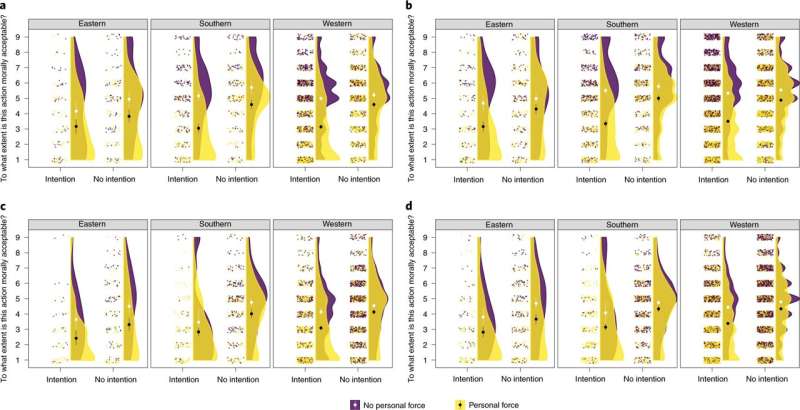Evaluating the morality of actions found to be culturally universal

Do people from distinct cultural groups use similar strategies when faced with moral judgments?
Past research indicates that when judging the morality of harmful actions, people are sensitive to both the intention of the actor and whether physical force was applied by the actor.
To illustrate, when making judgments regarding sacrificing one person in order to save more individuals, people are less likely to judge this decision as morally acceptable when they had to use their personal force to kill the person and the death of this person was required to save more individuals.
However, so far most past research was conducted in samples from Western, Educated, Industrialized, Rich, Democratic (or the so-called WEIRD) societies, which limits the ability to generalize the findings culturally.
Would similar findings be observed in other cultural contexts?
Professor Taciano Milfont from the University of Waikato joined an international team of researchers who collected data from 27,502 participants in 45 countries to answer this question.
The study published recently in the journal Nature Human Behaviour provides strong evidence that both intention and physical force influence how we evaluate the morality of actions.
Further tests conducted by the researchers confirmed that moral judgments were comparable across the samples investigated, indicating that cultural variation was not observed in responses to the moral dilemma investigated. This is the first large study indicating that the way we evaluate the morality of actions might be culturally universal.
The 260+ authors project was led by Bence Bago, a Research Fellow at the Toulouse School of Economics in France, and Professor Milfont was one of the researchers collecting New Zealand data.
More information: Bence Bago et al, Situational factors shape moral judgements in the trolley dilemma in Eastern, Southern and Western countries in a culturally diverse sample, Nature Human Behaviour (2022). DOI: 10.1038/s41562-022-01319-5
Journal information: Nature Human Behaviour
Provided by University of Waikato





















